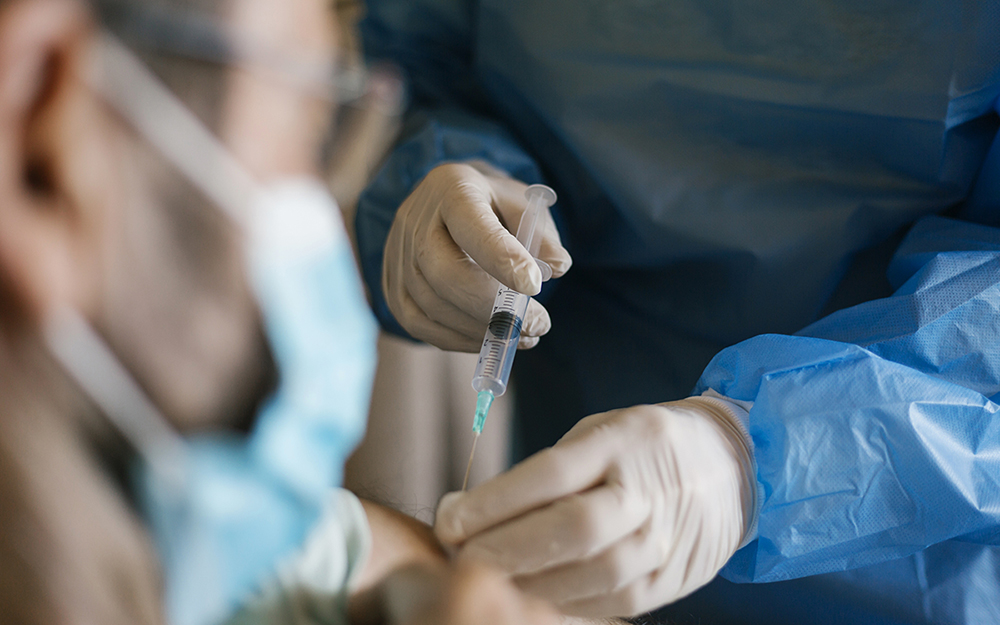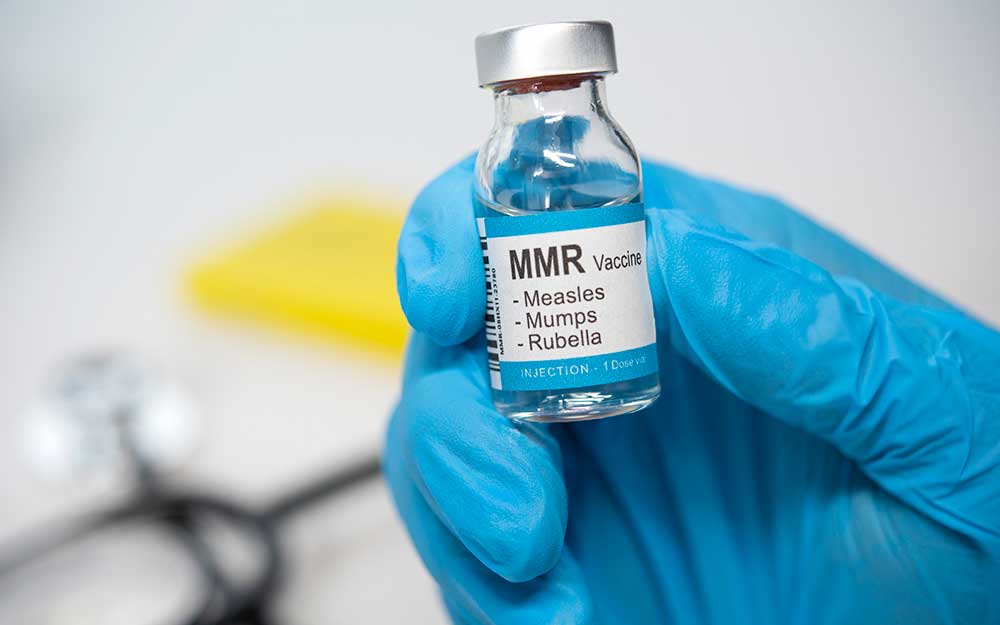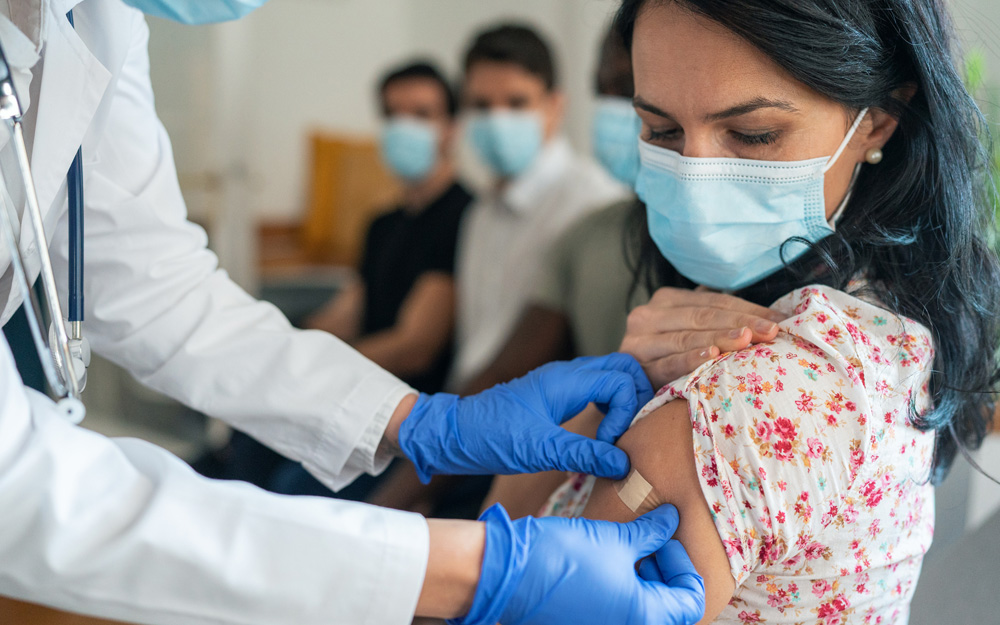Why Some Vaccines Last A Lifetime and Others Don't
Date
November 29, 2021

Date
November 29, 2021
Credits
Medical providers featured in this article
In Brief
{{cta-block}}
Ever wonder why some shots last a lifetime while other vaccines need a booster dose a few months or years later?
We're advised to get a tetanus shot every 10 years, Shingrix needs a booster 2-6 months after the first jab and the Hepatitis A and B vaccine comes in a 2-dose series administered over six months. Why is that?
Inquiring minds want to know, especially because the COVID-19 pandemic has brought vaccines to the forefront of daily news and conversations. And while vaccine durability still isn't well understood, scientists are learning more all the time and can make remarkably accurate predictions, leading to better outcomes.
"The more variants emerge, the harder it is to make a vaccine that will create lasting immunity, because the target keeps moving."
The mutant factor

All vaccines trigger immunity, but how long it lasts depends on several factors. One of them is the rate at which a virus replicates, says Hai Tran, associate director of Cedars-Sinai's Pharmacy Services.
"If a virus replicates quickly, it has a chance to produce more mutations, also known as variants. The more variants emerge, the harder it is to make a vaccine that will create lasting immunity, because the target keeps moving," she explains.
Ethan Smith, a pharmacist at Cedars-Sinai, agrees: "If a virus is stable, that gives us a big advantage. Measles is an example of a stable virus that is unlikely to replicate, so scientists could predict that immunity would last a long time, which it does." Smallpox and polio, highly contagious viruses that were almost eradicated through vaccination, are also stable with low mutation rates.
Viruses that replicate fast and mutate a lot, like influenza, pose a challenge for vaccine makers. "Every year there are multiple new strains of flu, which is why you should get a flu shot every year," says Hai. "This season's flu vaccine offers protection against four different strains, but next year, there likely will be new ones."
The B and T factor
It's also difficult to measure how strong somebody's immunity is over time. "Counting antibodies doesn't give you a full picture of how well you're protected, because vaccines also train B cells and T cells," says Ethan, who serves as Cedars-Sinai's Manager for Drug Use Policy. "When confronted by a known enemy, 'memory' B cells quickly deploy new antibodies to stop infection, while 'killer' T cells clean up where antibodies failed, eliminating infected cells."
For many diseases, experts believe antibodies are the key protective mechanism, but B and T cells may be even more important for other pathogens, including tuberculosis, malaria and HIV. While less famous than antibodies, they play a big role in making immunity last.
The numbers factor
Despite that advantage, most COVID-19 vaccines require two doses, as do many other shots including virtually all childhood immunizations.
"When scientists are developing a new vaccine, they do preliminary studies to get an idea of how many doses may be needed," says Ethan. "They measure how many antibodies are produced from one shot, and how much more protection you might get from a second dose. If researchers decide that one dose gives enough protection and that a second dose doesn't significantly improve things, they'll develop it as a one-dose vaccine."
With the COVID-19 pandemic, time was of the essence, so the vaccines were brought to market once it was clear they were safe and effective. But as scientists monitor the shots over a longer period, they can determine how often booster doses may be needed.
The Johnson & Johnson shot was developed as a one-dose vaccine, but as time goes on, we see that it may work even better with a booster. The vaccines could also be adapted to fight new variants as they continue to emerge.
"The mRNA technology (used in the Pfizer-BioNTech and Moderna COVID-19 vaccines) may offer more flexibility than previous technologies," says Ethan. "Scientists are discussing how to use the existing mRNA platform and quickly adapt it to mutations, so that your immunity stays primed to fight infection over your lifetime."
The timing factor
What about the timing between doses? "When setting up clinical trials, researchers choose a dosing schedule based on the preliminary data and what they've seen work with other vaccines," Hai explains. "Sometimes, the immune response doesn't develop adequate antibodies, or immunity wears off very fast, making a second dose necessary."
When developing their COVID-19 vaccine, Johnson & Johnson found a strong immune response after a single dose and noted that immunity continued to get stronger even 28 days later. "That's why this vaccine was authorized as a one-dose shot," says Hai.
The Pfizer and Moderna vaccines did not generate strong enough immunity after the first dose, whereas two doses triggered an excellent response.
"Scientists don't really know the optimal dosing interval for mRNA vaccines," Hai explains. "They determined the timing based on the results of clinical trials."
One thing is certain: when it comes to getting that first shot, the best time is as soon as you’re eligible. That goes for every infectious disease. While some vaccines last longer than others, they are all formidable tools in the quest to reduce human suffering, prolong life and help people thrive.





.jpg)